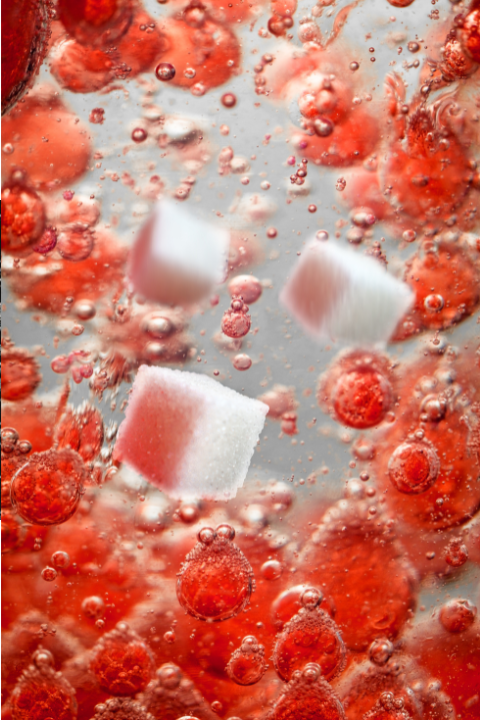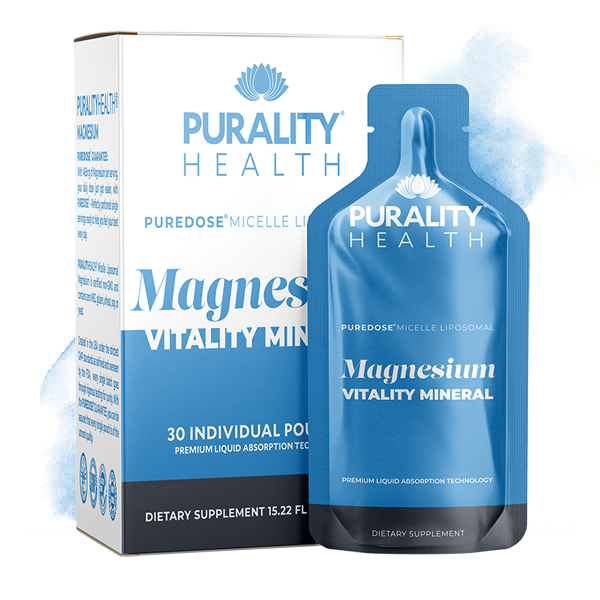Why Magnesium Matters
Your body depends on magnesium for more than 300 different processes — from steady energy and strong bones to restful sleep and a calm, balanced mood.
But here’s the problem: most adults already fall short on magnesium every single day. In fact, some researchers estimate that as many as 7 in 10 people aren’t getting enough.
And to make matters worse? Some of the most common foods and drinks in your daily routine may actually be draining your magnesium reserves.
That means even if you try to eat “healthy,” you could still be running on empty when it comes to this essential mineral.
So, what are the culprits? Let’s break down 5 everyday foods and drinks that may be quietly robbing your body of the magnesium it needs to function at its best.
 1. Coffee
1. Coffee
For many of us, coffee is non-negotiable. It’s how we start the day, push through the afternoon, or treat ourselves on a busy morning.
But here’s what most people don’t realize: coffee doesn’t just wake you up — it also wakes up your kidneys.
Caffeine acts as a natural diuretic, meaning it increases urine production. And every time you run to the bathroom after your morning cup (or two, or three), your body is flushing out more than just water. It’s also losing valuable minerals — including magnesium.
In fact, studies show that caffeine can increase magnesium excretion, making it harder to maintain healthy levels if you’re already borderline low. And because magnesium plays such a big role in energy production, relying on coffee for a boost could actually backfire in the long run — leaving you more tired and drained once the “buzz” wears off.
The good news? You don’t have to quit coffee altogether. But if it’s a daily ritual, it’s important to know it may be quietly depleting your body of one of its most vital nutrients.
2. Alcohol
A glass of wine with dinner or a cold beer on the weekend might feel harmless, but alcohol can be surprisingly hard on your magnesium levels.
That’s because alcohol interferes with magnesium in two major ways:
- It blocks absorption. When alcohol is present in your digestive system, it makes it harder for your body to absorb nutrients — including magnesium — from your food.
- It increases excretion. Alcohol also acts as a diuretic, causing your kidneys to flush magnesium (and other minerals) out of your body faster than normal.
Over time, this one-two punch can leave your magnesium reserves seriously depleted. And it doesn’t take heavy drinking to make a difference — even moderate consumption, like a nightly glass of wine, can contribute to lower levels.
Low magnesium is also linked to poor sleep quality. Add alcohol’s natural sleep-disrupting effects on top of that, and it becomes a recipe for restless nights and groggy mornings.
If you enjoy the occasional drink, it doesn’t mean you have to give it up forever. But it does mean you’ll want to be extra mindful of replenishing the nutrients your body is losing — especially magnesium.
 3. Sugar
3. Sugar
Sugar isn’t just empty calories — it’s also a mineral thief.
When you eat foods high in refined sugar, your body has to work harder to metabolize it. That process requires magnesium, meaning every cookie, soda, or candy bar drains your reserves even further.
On top of that, high sugar intake increases magnesium excretion through the kidneys. So, not only is your body using up magnesium to process sugar — it’s also flushing it out faster.
Over time, this can create a vicious cycle: the more sugar you eat, the lower your magnesium levels become. And when magnesium drops, you may find yourself feeling more fatigued, stressed, and even craving more sugar as your body looks for a quick energy fix.
That’s why experts often say: sometimes your “sweet tooth” is really your body crying out for magnesium.
💡 Here’s an important note: If you’re going to supplement magnesium to rebuild your levels, make sure it’s sugar-free. The last thing you want is your supplement undoing the very benefits it’s supposed to provide.
4. Processed Foods
Packaged snacks, fast food, and refined grains may be convenient, but they’re stripped of most of their natural nutrients, including magnesium.
Here’s why: during the refining process, much of the bran and germ of grains (where minerals like magnesium are stored) gets removed. The result? White bread, white rice, pasta, and countless packaged foods that are basically devoid of this essential mineral.
Worse, many processed foods are packed with additives, preservatives, and excess sodium. These compounds can actually increase mineral loss in your body, creating a bigger gap between what you eat and what your body truly needs.
It’s no coincidence that experts estimate up to 80% of Americans don’t get enough magnesium. A diet high in refined and processed foods is one of the biggest reasons why.
Even if you “eat clean” most of the time, a single processed meal can undo some of your efforts — draining your reserves and keeping your body from functioning at its best.
5. Soda (Especially Cola)
Soda may be refreshing in the moment, but it’s one of the worst offenders when it comes to robbing your body of magnesium.
Here’s why: sodas — especially colas — are loaded with phosphates. These compounds bind to magnesium in your digestive system, preventing your body from absorbing it properly.
On top of that, sodas often combine three big magnesium-depleting factors in one hit:
- Caffeine (which increases magnesium excretion)
- Sugar (which uses magnesium to metabolize and flushes more through urine)
- Phosphates (which block absorption altogether)
That makes soda a triple threat to your magnesium levels. And with many people drinking one or more cans daily, it’s easy to see why magnesium deficiency is so widespread.
Even diet sodas aren’t much better — the phosphates and caffeine are still there, which means your body continues to lose more than it gains.
If you want to protect your magnesium levels (and your overall health), cutting back on soda is one of the simplest and most impactful steps you can take.
 Protecting Your Magnesium Levels
Protecting Your Magnesium Levels
Coffee. Alcohol. Sugar. Processed foods. Soda.
They’re everyday items that almost everyone consumes — but they quietly drain your body of magnesium, leaving you at risk for fatigue, poor sleep, muscle cramps, stress, and more.
And since magnesium is involved in over 300 essential body processes, even a small drop below healthy levels can have a big impact on how you feel each day.
The reality? Most diets can’t replenish magnesium fast enough to keep up with these losses. That’s why supplementation is so important — but only if it’s in a form your body can actually absorb.
That’s where Purality Health’s Micelle Liposomal Magnesium comes in. Our formula is designed for superior absorption, so your body can actually use what you take. It’s sugar-free, non-GMO, and in a smooth liquid form that makes daily support simple.
💡 Right now, we’re offering a special BOGO promotion — buy one box, get another FREE. That’s double the support for your magnesium levels, with no extra cost.
👉 Click here to claim your BOGO boxes today.
Give your body back the mineral it needs to sleep better, stress less, and feel your best — no matter what life (or your diet) throws at you.
